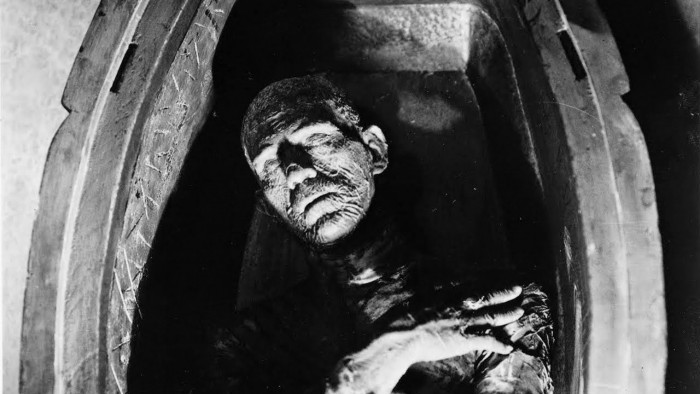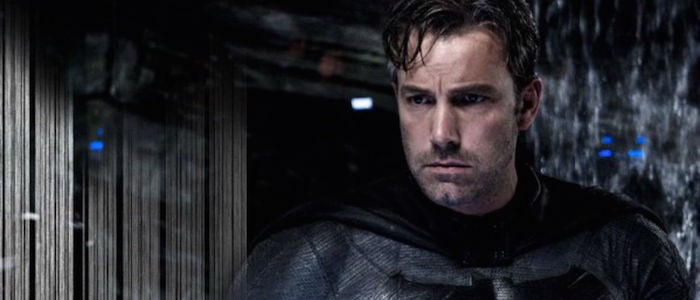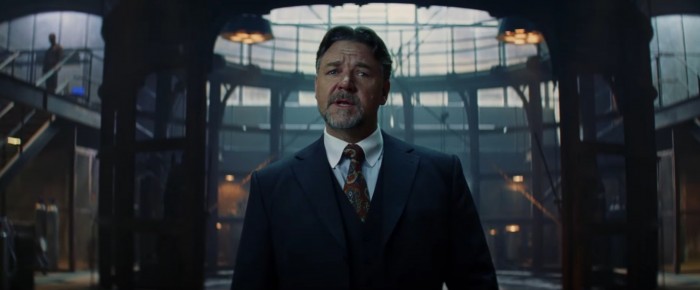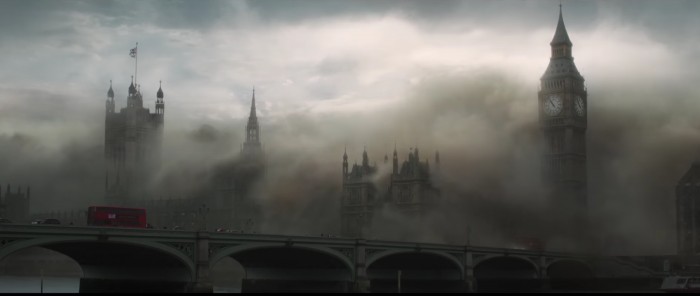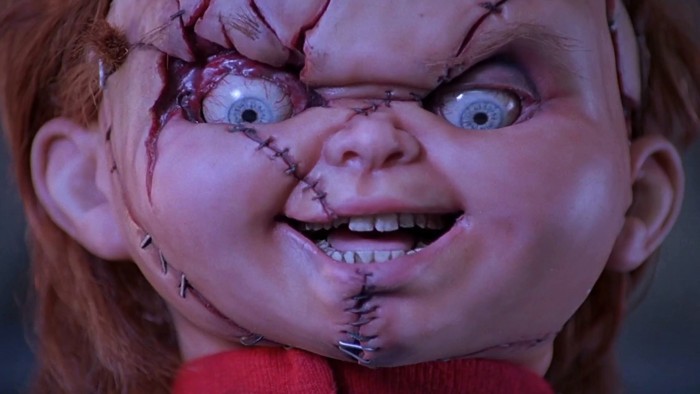How The Universal Monsters Movie Universe Will Emulate Marvel Over DC
Last year it was revealed that Fast and the Furious producer Chris Morgan was teaming with screenwriter/director Alex Kurtzman to design a Universal Monsters cinematic universe. The plan was to reboot the Universal Monsters properties, including characters such as Dracula, The Wolf Man, Frankenstein, The Invisible Man, and Creature from the Black Lagoon, each with their own movies leading to an Avengers-type film that would bring them all together.
The trailer for the first film in the series, The Mummy starring Tom Cruise, was released over the weekend, giving us a first look at the Universal Monster movie universe. I had the opportunity to talk with director Alex Kurtzman about the creation of this world, what their intentions are, how they hope to bring it all together and more. Please note the headline comparison to Marvel is my own, not Kurtzman's. Although I think its obvious that Kurtzman's opinion on building a cinematic movie universe seem to closely reflect Marvel Studios' own philosophies and approach.
Alex Kurtzman grew up watching the Universal monster movies, and explained to me how his affinity for the classic films has influenced his direction of The Mummy and the Universal Monsters cinematic universe:
I love monster movies, and there was sort of a defining moment for me when I was a kid, and it was when I saw Frankenstein. And I was very young when I saw Frankenstein and I saw the scene where Frankenstein makes friends with the little girl, and they share the flower and she throws it into the water, and he thinks that's just how they're playing so he picks her up and throws her into the water and she drowns. And as a kid, it was like a deeply emotional and very confusing experience, because I felt huge empathy for this monster and I was scared for him, and on the turn of a dime he killed this girl. Not because he was trying to but because he didn't understand how to communicate with her. And it really wasn't until around the 8th grade when I went into a major horror/slasher phase that I started understanding the distinction between a "monster movie" and horror movie and a slasher movie. Those are three very different things.
And I think that what, for me, has always endured about the monster movies is that they are the only movies – there are exceptions, obviously, within every genre – but they're the only movies where you are afraid of the monster and you are afraid FOR the monster. And what that does, for me, is it sort of reflects, I think, the parts of our personalities that are the parts that society wants to throw in a box and tamp down, and not let become expressed. I think that's the monsters have always represented. They are these wonderful mirrors that reflect parts of who we are as people, and I think that the obligation of making a monster movie is to figure out a way to find empathy for the monster, to find empathy for all the other characters, but also to scare people.
Kurtzman also talked about how The Mummy and this monster movie universe will be different from the previous incarnations.
Tone is where the ballgame — as I think you guys know and often write about — is won or lost. You look at all the world-building universes these days from Marvel to DC to anything, and each one has its very specific tone. I think our tone... the first thing I felt was we have to go modern day. We have to go modern day and we have to make it feel grounded, and we have to make it feel... again, speaking to why we were going to a more practical than visual effects, I think if we can as an audience feel what it would actually be like if a monster came into our world, as opposed to we're just sort of watching this fake world on screen, that would be an achievement if we could get there.
And when Tom came on board, Tom had all the same touch points as a kid that I did about monsters. Loved them. Was terrified of them. Hid under the bed from them. All the same things that I think we all feel when we think of the Universal Monster movies. And I don't know how many of you have talked to him or ever met him but he never does anything halfway, so if he's in, it's a thousand percent in, in the most intense way possible, and that was what was required for us to get where we need to go in this movie. So the first question I'm always asked is, "What is it? Is it the Brendan Fraser Mummy?" It's not, and part of why you're here today is I want to begin a discussion with you guys about where the tone lives, and not only where the tone lives for this movie, but people have also said, "What's this bigger monster universe that you're setting up?"
So the question is, how do you adapt these Universal Monster characters into a connected cinematic world? It seems like Kurtzman did not want to approach the Universal Monsters movie universe in the same way Warner Bros. approached the DC movies:
I believe strongly that the only way you can build a universe is not to start by trying to build a universe, that if you want to get there, the only way you're going to get there is if the audience allows you to get there. Meaning, you have to do great individual films first. The audience has to fall in love with those movies first, and those characters first, and if they do and you develop an organic story reason to start bringing them together, great! But you can't start with "Let's just mash everybody together."
The thing people forget is that the Universal Monsters were the first mashup, they were the first universe built. It started with, I think, Frankenstein Meets the Wolf Man, and that was the first time that they put them together and then from there they started cross-pollinating all the monsters. But that was only because Frankenstein had succeeded so many times as a film, and had spawned its own sequels, and Wolf Man had done the same, that Universal was at a point where they said, "God, we don't know what to do with these characters anymore. Why don't we put them together?" and then new stories emerged. So I can't tell you how much I believe that in order for you to enjoy The Mummy, you have to have a satisfying mummy experience. If we are then in that context able to set up a larger world? Great! But the setup of that larger world and whatever characters Tom may meet over the course of the mummy movie have to be part of the mummy movie. It cannot take you out of that.
So it sounds like they are approaching the movie much the same way that Marvel Studios approached the original Iron Man.
Dr. Henry Jekyll, of the famous Dr. Jekyll and Mr. Hyde alternative personality horror story, makes a prominent appearance in this film, despite not being part of the original Mummy narrative. In this film, Jekyll is played by Oscar winner Russell Crowe, an antagonist who will introduce Tom Cruise's character to the Prodigium and the larger world of the Universal monsters. From my viewpoint, he is being set up as the Agent Coulson or Nick Fury of the Universal Monsters cinematic universe, although Kurtzman did not make that comparison. He explains that Jekyll became involved in the story organically as a way to explain this universe to the audience and our lead character:
In looking to figure out how to place The Mummy in a larger context and setting up this organization that has actually been dealing with monsters for longer than any of us have been around, it became clear that we needed somebody to be the voice of that organization. The next thought was like, "Well, it could be Joe Mcgillicuddy, or we could actually go into another character that makes sense organically." It was a real point of conversation with Tom. If we're going to bring in Henry Jekyll, how is bringing Henry Jekyll into the mummy story not a detractor from the mummy story? How does Henry Jekyll become part of this story in an organic way? And part of what Tom's character, Nick, learns about the mummy and about the history of the mummy comes through Jekyll's very deep understanding of monsters and how monsters have existing quietly in this world for eons.
As you see in the trailer for The Mummy, this adventure takes place on a world-at-stakes scale of massive proportions. And Kurtzman assures us that not all of the Universal Monster films will operate on this scale.
I think it is one of the most essential questions in terms of like, if you're looking to build a universe, do you say everything is going to be this size or not? I think for me, as an audience member, I start to get inured to "Oh my god, the world is ending again, and now cities are being blown up." It's a tricky thing. You can only do that, I think, to a degree. Once you start doing it over and over and over again it loses its meaning and its power and its potency. I think some of the monster movies will require us to go really, really big. I just think, when you start to think about what do you really want from that movie... Okay, well, Creature from the Black Lagoon. I want that to be in the jungle. Okay, we're in the Amazon. Where do you want to shoot that, on the backlot or in the Amazon? No, we have to actually go there. Okay, if we go there what's THAT going to...? Well, now you're talking about a big movie. You know what I mean? And there's underwater and there's all the things that you would look for, for something like Creature.
So like the Marvel films, some movies will have world-changing consequences while others (like Ant-Man) might take place in a smaller corner of this world. Again, my Marvel comparison, not his. But it seems apt. Like Marvel, they are letting the character determine how big the story wants to be:
The story starts to tell you what it wants to be and how big it wants to be. The beauty of monster movies is that because they're psychologically complicated, there are certain monsters that are better served by being really intimate and really small, and so I think the goal would be to make room for... they don't all have to be this size, but it's certainly good to start that way because I think that's how we reach as many people as we can. I'd love to think we can do smaller movies too. I would.
Another journalist at the presentation I attended wondered if the pantheon of Universal Monsters could expand to include some of Universal's more modern horror characters and creatures, like Tremors or Chucky, or if the Universal Monsters movie universe would just stick to the classics.
We're talking about the classics right now. I would say that if you want to define our mission statement, it's to bring a very modern approach to the classic Universal Monsters. It really will be limited – at least in our thinking right now – to the monsters that you're talking about.
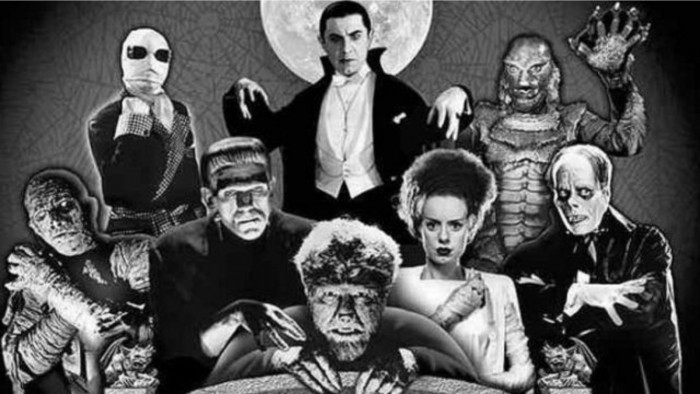
Kurtzman also clarified that Dracula Untold is not considered canon in this new Universal Monsters movie universe, which means we'll see another re-do of the classic vampire on the screen in the coming years.
As for right now:

